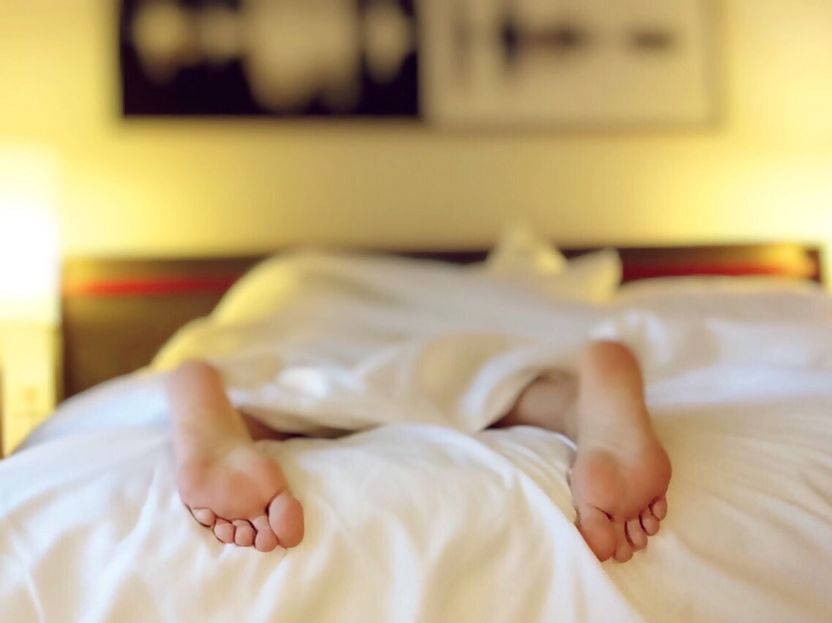Our sleep during lockdown: longer and more regular, but worse
The lockdown has managed to exhaust even good sleepers
A survey conducted at the University of Basel and the Psychiatric Hospital of the University of Basel has investigated how sleep has changed during the Covid-19 lockdown. The 435 individuals surveyed – most of whom were women – reported sleeping longer while sleep quality deteriorated.

Wokandapix, pixabay.com, CC0
Research assumes that many sleep disorders are caused by our modern lifestyle, which is characterized by pressure to constantly perform and be active. Rhythms of work and leisure activities thus set a cycle that is often at a mismatch with the body’s internal biological clock. If the differences in sleep timing and duration between work days and days off become too large, this can lead to “social jetlag”. With this in mind, restrictions that involve working from home could offer some benefits: flexible working hours, no commuting and potentially more time to sleep.
Researchers from the University of Basel and the Psychiatric Hospital of the University of Basel investigated the effects of the restrictions implemented to contain the Covid-19 pandemic on sleep rhythms and sleep behavior in a six-week online survey conducted between 23 March and 26 April 2020. Under the leadership of psychologist Dr. Christine Blume, a total of 435 people were surveyed in Switzerland, Austria and Germany. More than 85% of the respondents were working from home at that time. Overall, the participants slept rather well, 75% of them were women.
Less “social jetlag”
The survey found that a relaxation of social rhythms – for example, through more flexible working hours – led to a reduction in “social jetlag”. “This suggests that the sleep-wake patterns of those surveyed were guided by internal biological signals rather than social rhythms,” says Blume. Furthermore, 75% of those surveyed reported sleeping up to 50 minutes longer than before the lockdown. One factor contributing to this could be that people no longer had to commute to work in the morning, the sleep researcher explains.
Tip: outdoor activities
However, this reduction of “social jetlag” was not paralleled by an improvement in perceived sleep quality. To the contrary, those surveyed reported that their sleep quality actually deteriorated a little during the lockdown. This is not very surprising, explains Blume, as this unprecedented situation also was highly burdening in many ways. Financial and health concerns or stress related to child care are just a few relevant aspects.
The sleep expert has a tip for those whose sleep has deteriorated: “Our findings suggest that physical activity outdoors could counteract a deterioration in sleep quality.”
Original publication
Other news from the department science

Get the life science industry in your inbox
By submitting this form you agree that LUMITOS AG will send you the newsletter(s) selected above by email. Your data will not be passed on to third parties. Your data will be stored and processed in accordance with our data protection regulations. LUMITOS may contact you by email for the purpose of advertising or market and opinion surveys. You can revoke your consent at any time without giving reasons to LUMITOS AG, Ernst-Augustin-Str. 2, 12489 Berlin, Germany or by e-mail at revoke@lumitos.com with effect for the future. In addition, each email contains a link to unsubscribe from the corresponding newsletter.




















































